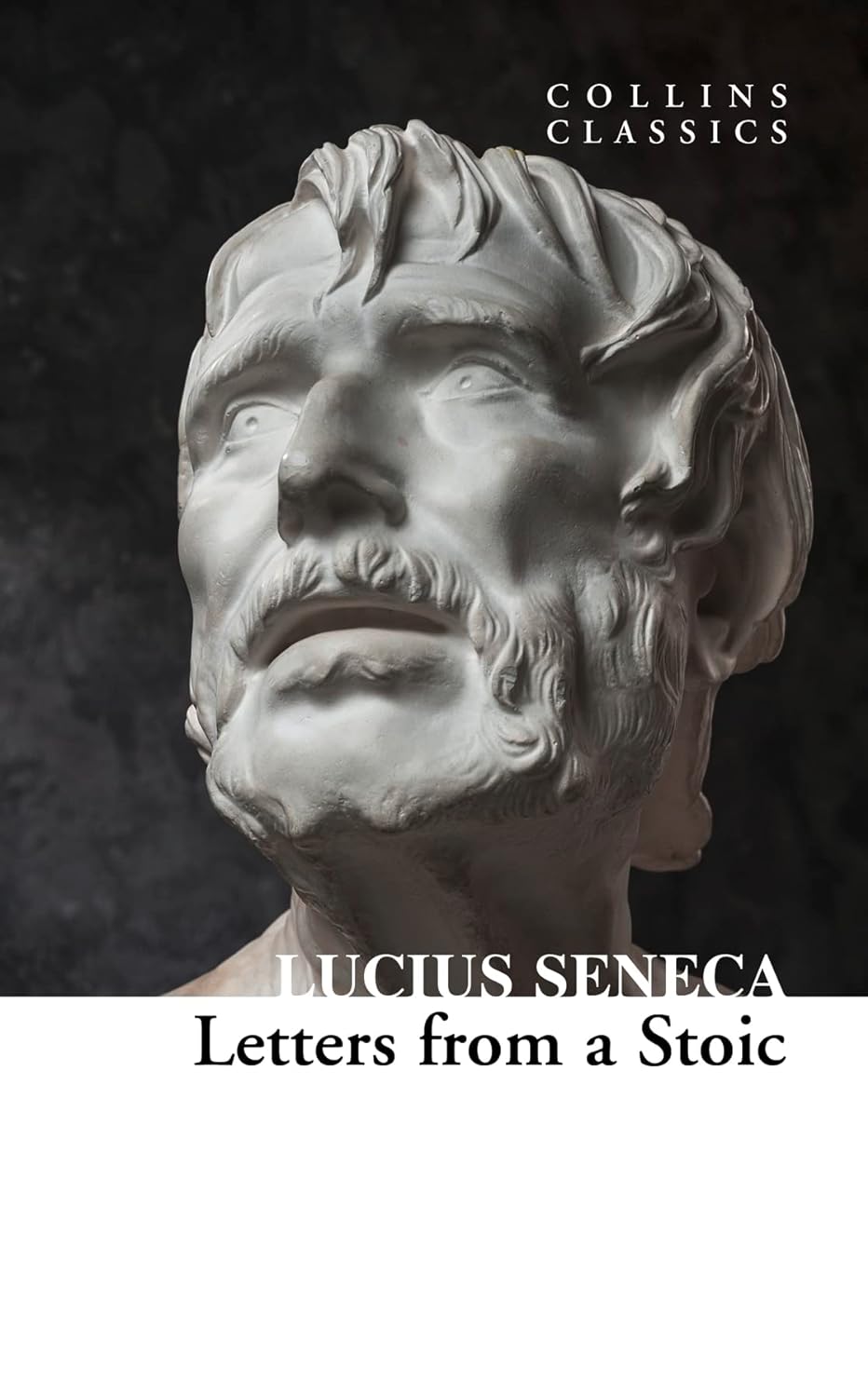
Letters From A Stoic by Seneca
“Letters from a Stoic” is a collection of 124 letters written by the Roman philosopher Lucius Annaeus Seneca to his friend Lucilius.
These letters, often referred to as the “Epistulae Morales ad Lucilium,” are a significant part of Seneca’s philosophical legacy and provide insights into Stoic philosophy and practical wisdom.
“If you really want to escape the things that harass you, what you’re needing is not to be in a different place but to be a different person.”
All Amazon purchases support Coyote Church.
Content & Themes
- Stoic Philosophy: Seneca discusses various aspects of Stoic thought, emphasizing the importance of virtue, rationality, and self-control.
- Practical Advice: The letters offer practical guidance on how to live a good life, face adversity, and achieve tranquility.
- Ethics and Morality: Seneca explores ethical dilemmas, the nature of happiness, and the value of inner peace.
- Death and Mortality: There is a recurring theme of accepting mortality and viewing death as a natural part of life.

“Enjoy present pleasures in such a way as not to injure future ones.”
Structure
- The letters are addressed to Lucilius, who was a younger friend and possibly a procurator in Sicily.
- Each letter is a standalone piece, discussing a specific topic or giving advice on various aspects of life.

“Regard [a friend] as loyal, and you will make him loyal.”
Style & Tone
- Seneca’s writing is didactic, aiming to instruct and guide Lucilius (and the readers) in living according to Stoic principles.
- The tone is often personal and reflective, making the philosophical teachings accessible and relatable.

“There is no enjoying the possession of anything valuable unless one has someone to share it with”
Key Takeaways
- Virtue as the Highest Good: According to Stoicism, living a virtuous life is the key to achieving true happiness and inner peace.
- Control Over Emotions: Seneca emphasizes the importance of controlling one’s emotions and not being swayed by external events.
- Rationality and Wisdom: The pursuit of wisdom and the use of reason are central to living a good life.
- Accepting Fate: A core Stoic idea is to accept whatever happens with equanimity, understanding that we have control over our reactions but not over external events.

“Withdraw into yourself, as far as you can. Associate with those who will make a better man of you. Welcome those whom you yourself can improve. The process is mutual; for men learn while they teach.”
Historical & Philosophical Context
- Stoicism: An ancient Greek philosophy founded by Zeno of Citium, later developed by philosophers like Epictetus, Marcus Aurelius, and Seneca.
- Roman Influence: Seneca’s work reflects the adaptation of Greek Stoicism into Roman culture, emphasizing practical application in everyday life.

Legacy and Influence
- “Letters from a Stoic” has had a lasting impact on Western thought and continues to be widely read and respected.
- The work has inspired countless individuals seeking guidance on how to live a meaningful and fulfilling life.
- Seneca’s letters remain relevant today, often referenced in discussions about personal development, resilience, and mental well-being.

“If you live in harmony with nature you will never be poor; if you live according what others think, you will never be rich.”

Letters from a Stoic (Collins Classics) Paperback
$4.99
